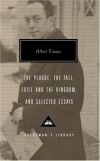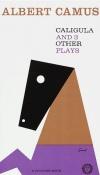
After hiding in a dismal cellar during the Nazi occupation, a Hungarian girl must flee from the Russians who now control her country

Albert Camus notes in his Preface that, although he has "the most passionate attachment for the theater," he has "the misfortune" of liking only one kind of play, whether comic or tragic. He concludes that there is no true theater without language and style, nor any dramatic work which does not, like our classical …
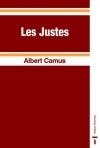
The Just Assassins is a 1949 play by French writer and philosopher Albert Camus. The play is based on the true story of a group of Russian Socialist-Revolutionaries who assassinated the Grand Duke Sergei Alexandrovich in 1905, and explores the moral issues associated with murder and terrorism. In the play, all but one …
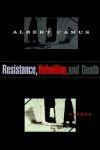
Resistance, Rebellion, and Death is a 1960 collection of essays written by Albert Camus and selected by the author prior to his death. The essays here generally involve conflicts near the Mediterranean, with an emphasis on his home country Algeria, and on the Algerian War of Independence in particular. He also …
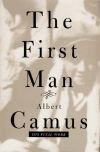
«Первый человек» — неоконченный автобиографический роман французского писателя и философа Альбера Камю, опубликован посмертно в 1994 году. Четвёртого января 1960 года Альбер Камю погиб в автокатастрофе. Черновая рукопись «Первого человека» была обнаружена в его дорожной сумке. Рукопись была подготовлена к публикации …
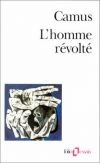
«Бунтующий человек» — эссе Альбера Камю, в котором анализируется метафизическое и историческое развитие восстания и революции в обществе, особенно в Западной Европе. Камю изучает концепции разных писателей и художников — Эпикура, Лукреция, маркиза де Сада, Гегеля, Федора Достоевского, Фридриха Ницше, Андре Бретона, …

 English
English Español
Español Deutsch
Deutsch

